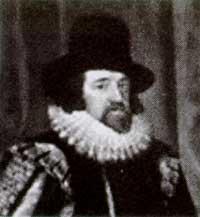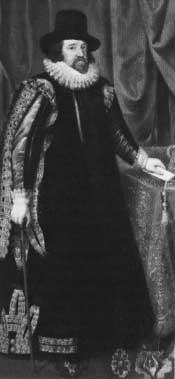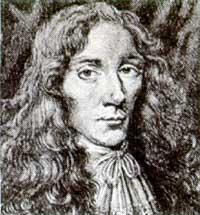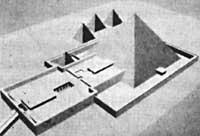Bacon, Francis
1995/08/02 Azkune Mendia, Iñaki - Elhuyar Fundazioa | Kaltzada, Pili - Elhuyar Zientziaren Komunikazioa
(1561-1626)
This English philosopher was the son of politician Nicolás Bacon. He was born in London on January 22, 1561 and, like his father, lived successfully in the court of the king. In court he showed a great skill, always being on the team of winners.

He studied law at Cambridge and started working in 1576. After a season in Paris with the English ambassador and his father's death in 1579, he returned from France. In 1584 he entered the Parliament of England and around 1591 he worked under the orders of Robert Devreux (Count of Essex and favorite advisor to Queen Elizabeth). However, in 1601, in the lawsuit that declared Count of Essex as a traitor, he was a judge and, when the count died, Bacon stayed with the gaze of Queen Elizabeth.
Queen Elizabeth died in 1603, but by then she had already conquered King James I thanks, above all, to the help of Duke of Buckingham. He was Procurator General in 1607 and Chancellor in 1618. He achieved these and other charges with gifts to the authorities and undoubtedly entered the dirty works that served him.
In 1621 he was appointed Vizconde de St. Albans and, when his fame was at the top, he was accused of judicial corruption. Bacon took gifts at the trial to support the regalists. As the evidence was very clear, he was convicted, but the penalty was not very demanding because the king supported him. However, Bacon remained without a political future and wrote his most interesting works until his death.
Despite his enormous lack of honesty as a person, he used his knowledge and power to give respect and honor to experimental science. He managed to fashion the experimental sciences among the English knights.
Between 1608 and 1620 he produced his main work Novum Organum, where he presented the scientific method. In Instauratio Magna develops a plan of organization of the sciences, besides other philosophical works of minor importance.
He argued that reasoning could serve for mathematics, but not for science. In Bacon's view, the laws of science should have been generalized through the realization of numerous specific trials. Nature could only be overcome by obeying nature and through the essay man became an interpreter of nature. In addition, it indicated that the trials should be carried out in a rational and methodical manner.
Francis Bacon died in London in his hometown of San Sebastian in April 1626.

Gai honi buruzko eduki gehiago
Elhuyarrek garatutako teknologia






